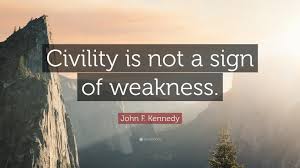I’ve traveled extensively in the past month, adding stamps to my passport from Netherlands, Czechia, Japan, and Singapore – and of course the US when I returned. The experience of passing through Customs and Immigration in those first four countries was fairly pleasant. “Hello, how are you? How long will you be in our country? Purpose of visit? Thank, enjoy your stay,” a quick stamp, and I was on my way. In each of those countries I encountered short lines and efficient service in a bright and welcoming space.
So, it was a jarring experience to return to the United States. I reentered the country through both coasts – Atlanta and San Francisco, both high-volume international airports. I was struck by the dramatic difference in the mood of these entry points. First, both entry facilities are dark and closed in – no windows, endless queues, and a general sense of drabness. I might not have immediately noticed this except that when I emerged from the customs space I found myself in bright, airy spaces. It was like emerging from a dungeon. How interesting.
But far more disturbing to me was the degree to which I felt disrespected. I am a US citizen reentering my own country, but I felt more like an assumed criminal who was being screened about my intent to do harm. It was bizarre. I encountered agents who did not make eye contact, who YELLED at me and others (I am not a hostile agent!), who kept up a continual stream of (in my assessment) dismissive and even demeaning instructions to those in line. I was actually depressed for a while, both times I reentered the country.
I thought, “why are they being so mean?”
Civility, Where Art Thou?
I believe what I experienced was the growing sense of incivility that is being normalized by our political systems and some segments of the media and social media. Anyone not with you must be against you, and all that. Fear and suspicion as the base. Ick!
Since my return I’ve returned to some of my old work around Civility, and of course The Universe is noticing this and sending me helpful messages. If you’re feeling that same sense of things right now, here are a few resources I’ve gathered for inspiration and support to get myself back into a place of joy and gratitude.
· Dan Pink’s recent Pinkcast (100 seconds long) in which he learns from author Christine Porath about the 10-5 rule – proof that a SMILE can change the workplace and the world.
· To supplement, Porath did a 15-minute TED talk on respect. Key quotes:
~~If you’re more civil, you’re more likely to be seen as a leader.
~~Be tough-minded on standards & tenderhearted with people
~~What do people want more than anything from their leader? Respect. Being treated with respect is more important than <just about any other workplace reward>
In this science-backed talk, she shares surprising insights about the costs of rudeness and shows how little acts of respect can boost your professional success — and your company’s bottom line.
· Porath’s book, Mastering Civility: A Manifesto For The Workplace, arrived at my office a few days ago and is already filling with underlined insights and folded pages for reference. She offers research-based PROOF that Civility actually does affect the workplace in numerous ways, from higher productivity, work quality, and employee engagement, to better health and reduced stress for everyone in the workplace.
· I’ve also revisited one of my favorite books of all time, P.M. Forni’s classic, Choosing Civility: 25 Rules for Considerate Conduct. Here’s my review and summary from a past blog post, Being Kind is Good For You.
· Finally, Adam Grant, an author and organizational psychologist I follow (Granted) recently wrote an article with his wife, Allison, about raising kids, in which they challenge the current narrative about “success” and make the case for focusing on kindness rather than status. They say:
“The real test of parenting is not what your children achieve, but who they become and how they treat others.”
If you influence kids as a parent, grandparent, auntie, uncle, or caregiver, you help form who that person becomes. Read the rest here.
While I cannot change my recent experiences of uncivil behavior, I can absolutely turn that energy into creating a positive influence on others to build a more civil – and happy! – world and workplace. I hope you’ll join me!

